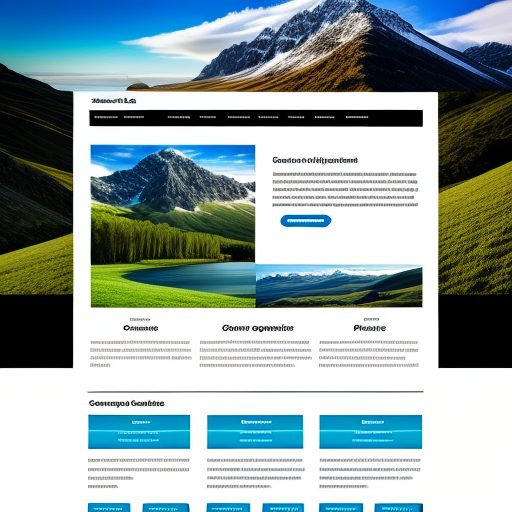
Why Website Maintenance is Critical for Business Success
Once your website is live, the work doesn’t stop there. Just like any physical asset, your website requires regular maintenance to keep it running smoothly, securely, and efficiently. Many businesses overlook this crucial step, only to encounter problems down the line-such as slow performance, broken links, or even security breaches.
In this post, we’ll explore why website maintenance is essential for business success and how neglecting it can hurt your business.
1. Ensure Optimal Website Performance
One of the key reasons for regular website maintenance is to ensure that your site performs at its best. Over time, websites can slow down due to factors such as outdated plugins, bloated databases, or unoptimized images. A slow website frustrates users and increases bounce rates, which can ultimately result in lost customers.
Regular website maintenance can improve:
- Page load speed: Keep your site fast by regularly optimizing images, clearing unnecessary data, and updating software.
- Responsiveness: Ensure that your website looks and works great across all devices, including desktops, tablets, and smartphones.
- Broken links: Detect and fix broken links that could lead to a poor user experience and negatively affect your SEO.
2. Protect Your Website from Security Threats
Website security is one of the most critical aspects of maintaining a website. Hackers are constantly evolving their tactics, and any outdated software or security vulnerabilities on your site can expose you to cyberattacks. Without regular updates, your website is at risk of malware, phishing attacks, and data breaches, which can have serious consequences for your business.
Key security maintenance tasks include:
- Updating software and plugins: Regularly update your website’s CMS, themes, and plugins to the latest versions to patch any vulnerabilities.
- SSL certificates: Ensure your SSL certificate is up to date, providing secure data transmission for your users and boosting SEO.
- Backup management: Regularly back up your website’s data to avoid losing important information in the event of a security breach.
3. Improve SEO and Keep Your Site Competitive
Maintaining your website plays a significant role in your search engine optimization (SEO) efforts. Search engines like Google prioritize websites that are well-maintained, secure, and user-friendly. By regularly updating content, fixing broken links, and improving page speed, you can enhance your site’s ranking in search results.
How website maintenance affects SEO:
- Fresh content: Updating your blog or pages with fresh, relevant content keeps search engines interested and can improve your rankings.
- Crawling and indexing: Regular maintenance ensures that search engines can easily crawl and index your site, helping you stay competitive.
- Mobile optimization: Ensuring your site is optimized for mobile users improves your SEO and provides a better user experience.
4. Boost User Experience and Engagement
A well-maintained website provides a better user experience, which is crucial for retaining customers and encouraging repeat visits. Regular updates to design elements, content, and functionality ensure that your website stays fresh, relevant, and easy to navigate.
Benefits of improved user experience:
- Reduced bounce rates: A fast, easy-to-use website encourages visitors to stay longer and explore more pages.
- Higher engagement: Fresh content, such as blog posts or updates to your services, keeps visitors engaged and coming back for more.
- Better conversions: A well-maintained site with clear navigation and calls to action (CTAs) improves the likelihood of converting visitors into customers.
5. Avoid Costly Repairs and Downtime
Neglecting regular maintenance can lead to bigger, costlier problems down the road. Small issues, such as broken links or outdated software, can snowball into significant technical problems that require expensive repairs. Additionally, unmaintained websites are more prone to crashes, which can result in downtime—costing you business and damaging your reputation.
With regular maintenance, you can:
- Prevent major issues: Address small problems before they become big headaches.
- Minimize downtime: Keep your website live and accessible by staying on top of updates and backups.
- Save money: Regular maintenance is often more cost-effective than repairing major issues after they arise.
6. Stay Compliant with Legal and Regulatory Requirements
Many businesses collect customer data through their websites, whether for sales, subscriptions, or marketing purposes. It’s essential to ensure your website complies with data protection regulations, such as the General Data Protection Regulation (GDPR) in Europe or the Protection of Personal Information Act (POPIA) in South Africa. Regular maintenance helps ensure your website is compliant with these laws, avoiding potential fines or legal trouble.
Key compliance maintenance tasks include:
- Privacy policy updates: Regularly review and update your privacy policy to reflect any changes in data collection practices.
- SSL certificate management: Ensure secure data transmission and compliance with regulations by keeping your SSL certificate up to date.
- Data management: Regularly audit how your website handles customer data to stay compliant with local and international regulations.
7. Maintain Your Competitive Edge
The digital landscape is always evolving, and so are your competitors. Regular website maintenance allows you to stay ahead of the competition by keeping your site up to date with the latest trends, technologies, and design elements. By consistently updating and improving your website, you demonstrate that your business is modern, trustworthy, and committed to providing the best possible experience for your customers.
Let B_Limitless Handle Your Website Maintenance
At B_Limitless, we offer comprehensive website maintenance services that ensure your site stays secure, up to date, and performing at its best. From regular backups and security updates to SEO monitoring and content management, we take care of everything so you can focus on running your business.
Contact us today to learn more about our website maintenance packages.






